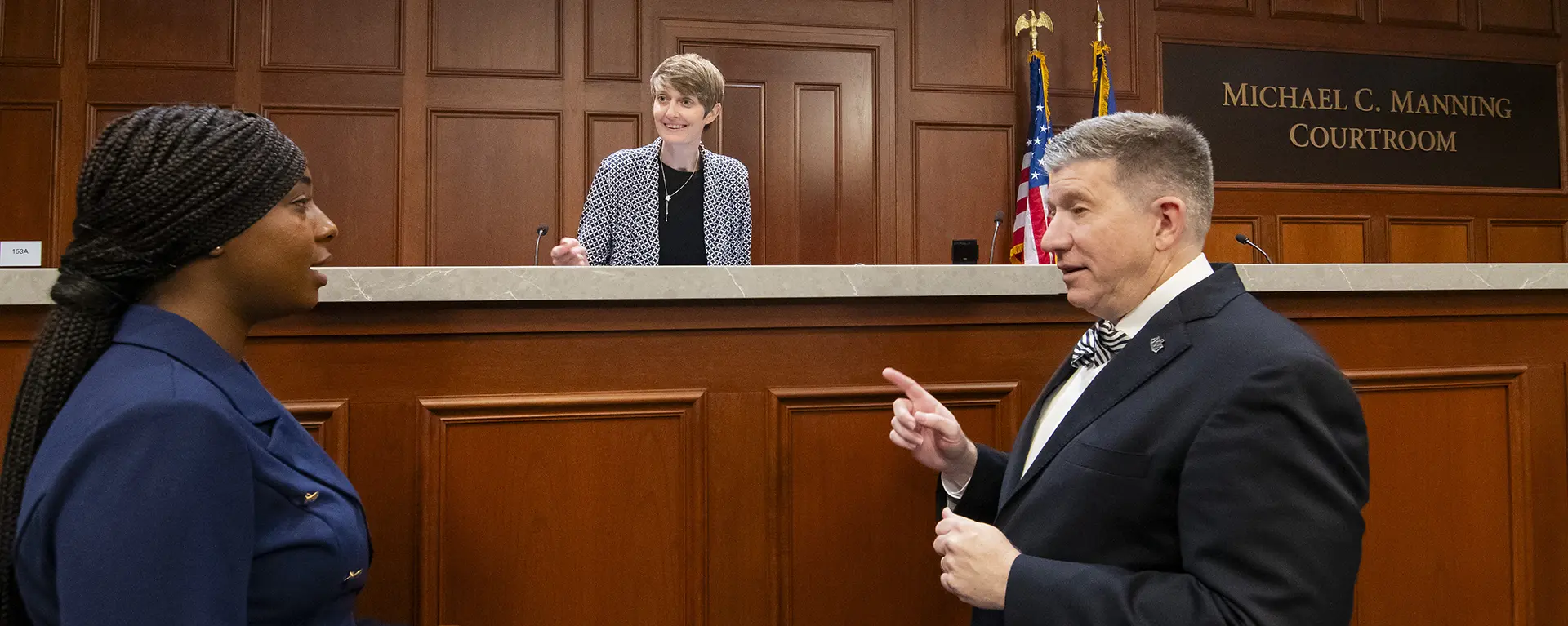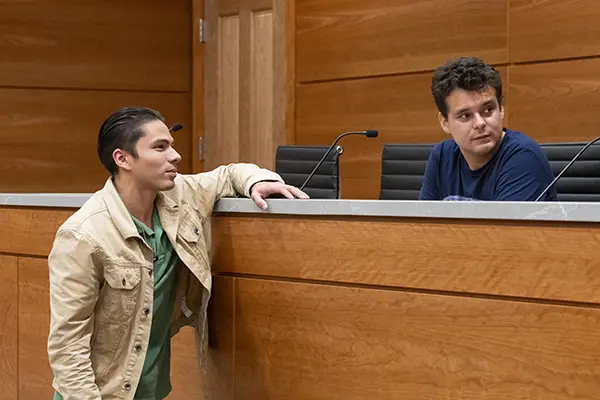Competition Teams


At Washburn Law, we pride ourselves on offering dynamic, hands-on learning experiences through our competition teams. Whether you’re arguing a counseling a client, negotiating a business deal or simulating a trial, these teams provide an invaluable opportunity to apply classroom knowledge in real-world scenarios. Our competition teams are not just about winning trophies; they are about building confidence, honing your legal skills, and preparing you for a successful career in law.
Joining a competition team at Washburn Law offers a multitude of benefits that extend far beyond the courtroom. Here's why you should consider becoming part of this vibrant community:
By joining a competition team, you'll gain more than just accolades; you'll acquire the skills, experiences, and confidence to excel in your legal career. We encourage you to seize this opportunity to challenge yourself, learn from the best, and become part of a tradition of excellence at Washburn Law.
